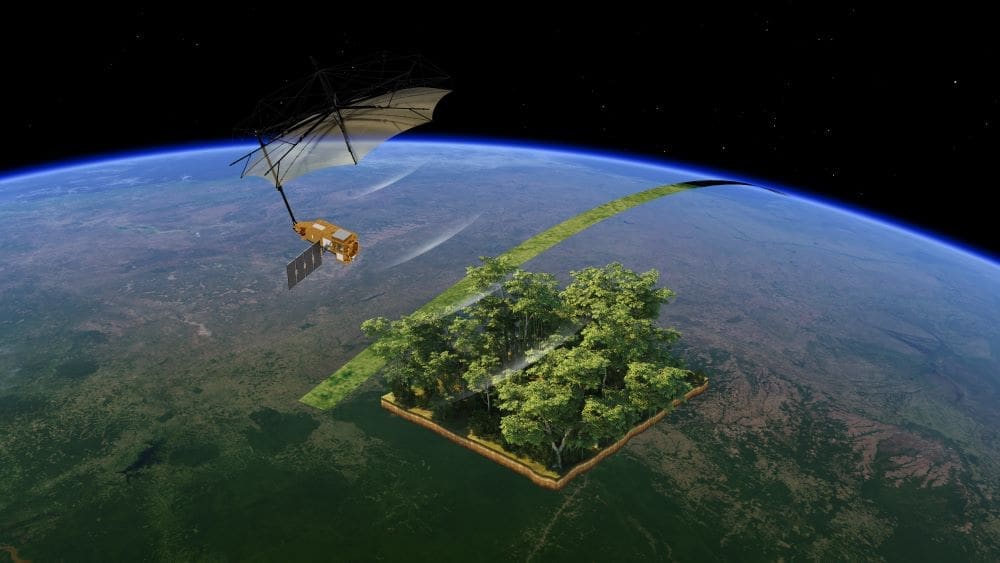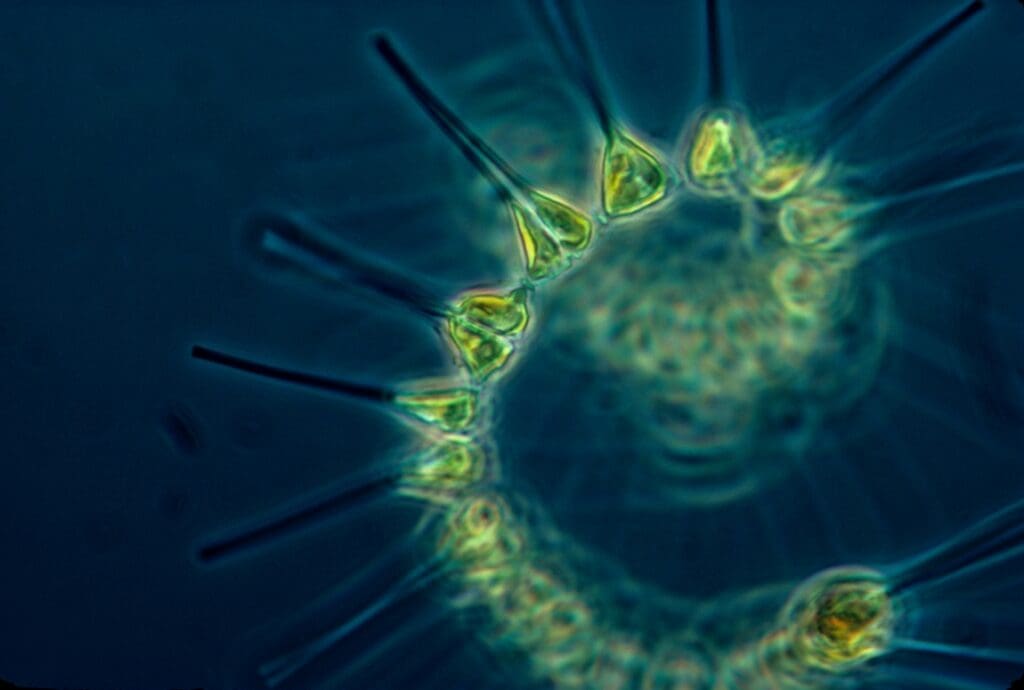ESA’s Biomass satellite has lifted off from Europe’s Spaceport in Kourou, French Guiana, aboard a Vega-C rocket, marking the start of a mission designed to transform our understanding of how much carbon is stored in the world’s forests. The launch took place on 29 April 2025 at 11:15 CEST (06:15 local time).
This latest Earth Explorer mission is now safely in orbit, where it will soon begin collecting data on forest structure and carbon content. Less than an hour after launch, Biomass separated from the rocket’s upper stage, and at 12:28 CEST, ground controllers at ESA’s European Space Operations Centre in Germany received the satellite’s first signal, confirming its successful deployment. The signal was relayed via the Troll ground station in Antarctica.
In the coming days, ESA’s flight operations team will oversee the launch and early orbit phase, a critical window for checking the satellite’s systems and deploying its large antenna. This process includes unfolding the satellite’s 12-metre-wide mesh reflector, supported by a 7.5-metre boom, a complex manoeuvre essential to its scientific mission.

Biomass carries the first-ever P-band synthetic aperture radar launched into space. With a wavelength of around 70 cm, this radar can penetrate clouds and dense forest canopies to detect woody biomass — specifically trunks, branches, and stems — where trees store the majority of their carbon. The mission’s primary goal is to quantify these forest carbon stocks and monitor how they change over time.
“Biomass now joins our esteemed family of Earth Explorers – missions that have consistently delivered groundbreaking discoveries and advanced scientific understanding of our planet,” said Simonetta Cheli, ESA’s Director of Earth Observation Programmes. “With Biomass, we are poised to gain vital new data on how much carbon is stored in the world’s forests, helping to fill key gaps in our knowledge of the carbon cycle and, ultimately, Earth’s climate system.”
Forests absorb roughly 8 billion tonnes of carbon dioxide annually, playing a central role in regulating the global climate. But when forests are degraded or cleared, much of this stored carbon is released back into the atmosphere, exacerbating climate change. Reliable data on carbon storage is crucial for climate science, policy decisions, and understanding the effects of land-use changes and rising global temperatures.
By providing large-scale, high-resolution measurements of biomass and forest height, the mission will support improved estimates of carbon fluxes. It will also contribute to knowledge of biodiversity loss, changes in forest health, and even subsurface features such as desert geology and ice sheet structures.
The satellite was developed by more than 50 companies led by Airbus UK. Vega-C, the rocket that launched Biomass, is the latest evolution in the Vega launch vehicle family, offering increased payload capacity and improved cost efficiency for scientific missions.
Article Source: European Space Agency (ESA)
Featured image credit: ESA/ATG medialab | CC-BY-SA 3.0 IGO



